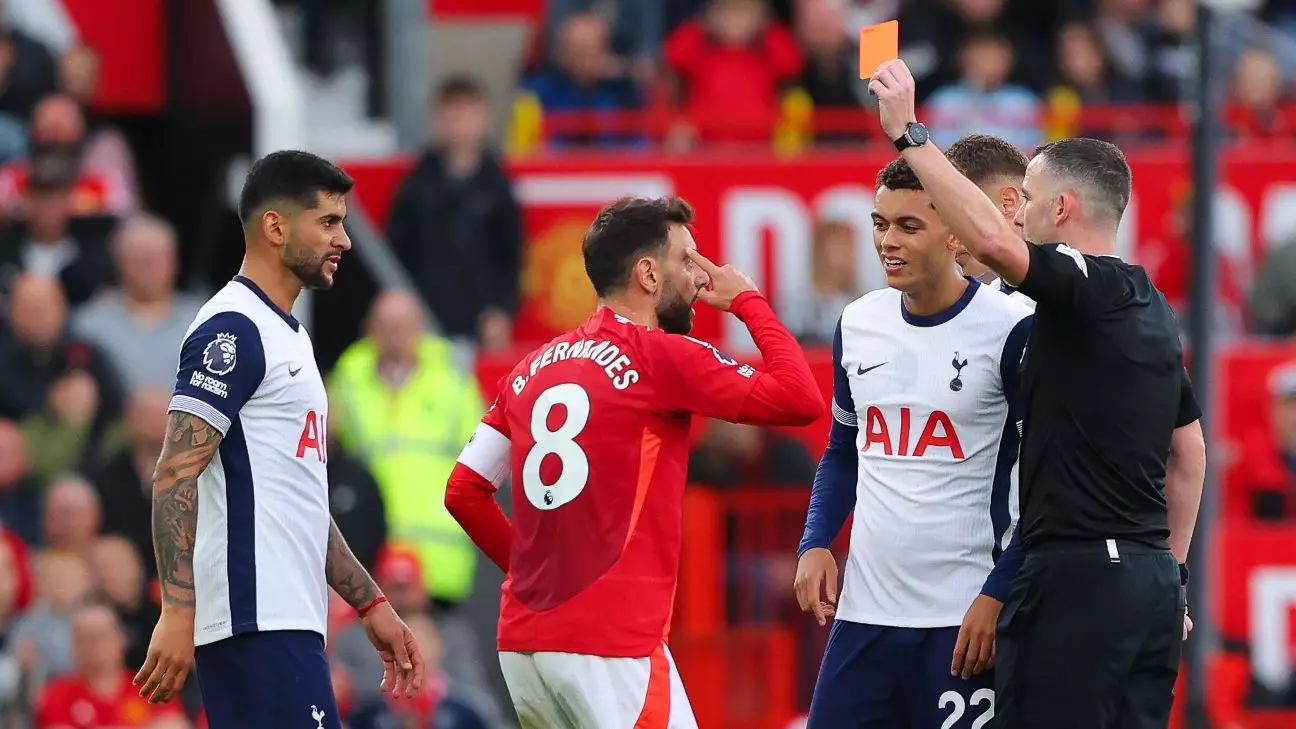In the aftermath of Manchester United’s disappointing 3-0 defeat to Tottenham Hotspur, the spotlight has fallen heavily on Bruno Fernandes following his controversial red card. The incident took place in the 42nd minute, fundamentally altering the dynamics of the match at Old Trafford. Fernandes, who captained the side, was visibly impacted by the dismissal, expressing that he felt the decision was unjust. “Nobody wants to be sent off; it’s not a good feeling,” he stated, indicating the emotional weight of his actions on his teammates.
The crux of the controversy originates from the nature of the challenge involving James Maddison. Fernandes admitted to slipping before making contact with Maddison but questioned the severity of the decision that followed. His claim that he did not initiate the tackle with excessive force raises significant points about officiating standards in football. The fact that Maddison himself conveyed his disagreement with the decision adds to the debate on whether the referee’s call was overly harsh. Such instances spotlight the often-ambiguous nature of foul play and the need for clearer guidelines in officiating within the sport.
One of the focal points of Fernandes’s critique was the video assistant referee (VAR) system. He expressed confusion as to why the on-field referee was not summoned to review the incident himself. This raises an essential discussion regarding VAR’s role in frustrating situations like this. While intended to enhance justice in decision-making, its application often leaves players, fans, and pundits bewildered. Observably, Fernandes’s call for accountability within the VAR system touches on a broader conversation about the need for more transparent processes in officiating football.
Being sent off has significant consequences for both the player and the team. As Fernandes noted, his early exit left United struggling with a man disadvantage, compounded by a lackluster start even before the red card was issued. The team’s resilience became a talking point post-match, with Fernandes expressing pride in their efforts despite overwhelming odds. However, trailing 1-0 at halftime and subsequently conceding two more goals ignites concerns about the squad’s preparedness and tactical rigidity, especially in high-pressure scenarios.
In the wake of the loss, Fernandes called for a mindset shift, focusing on potential learning points from the game rather than solely fixating on the adverse result. This attitude signifies a level of maturity that is crucial for a team facing criticism, suggesting that adaptability and resilience should be the cornerstone moving forward. As Manchester United reflects on this match, attention must be drawn to both individual accountability and collective performance to foster better results in future confrontations.
While the incident may cast a shadow on individual responsibility and decision-making, it simultaneously offers a moment for introspection and growth for Manchester United as a whole, paving the way for potential improvements amid the current challenges.

Leave a Reply